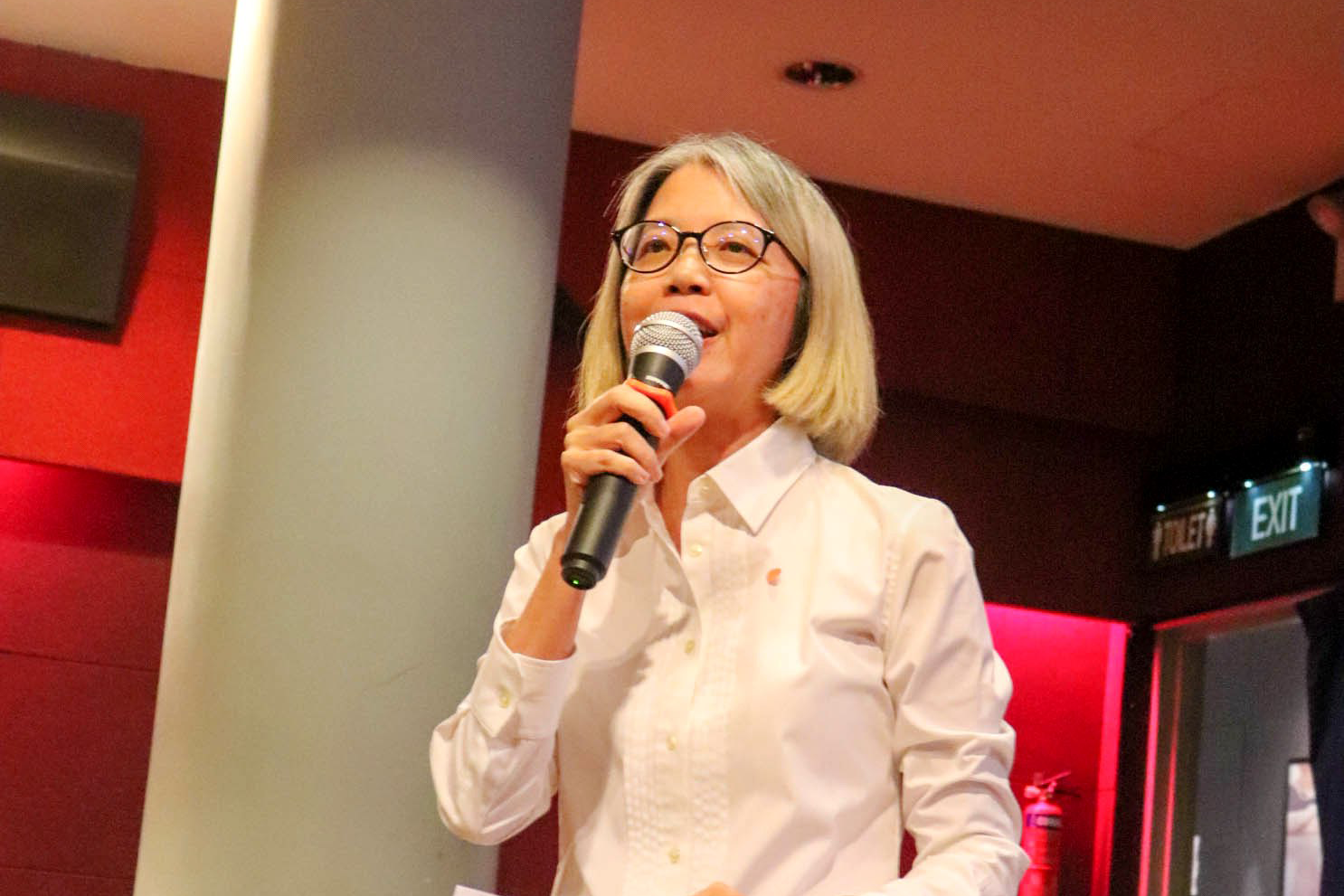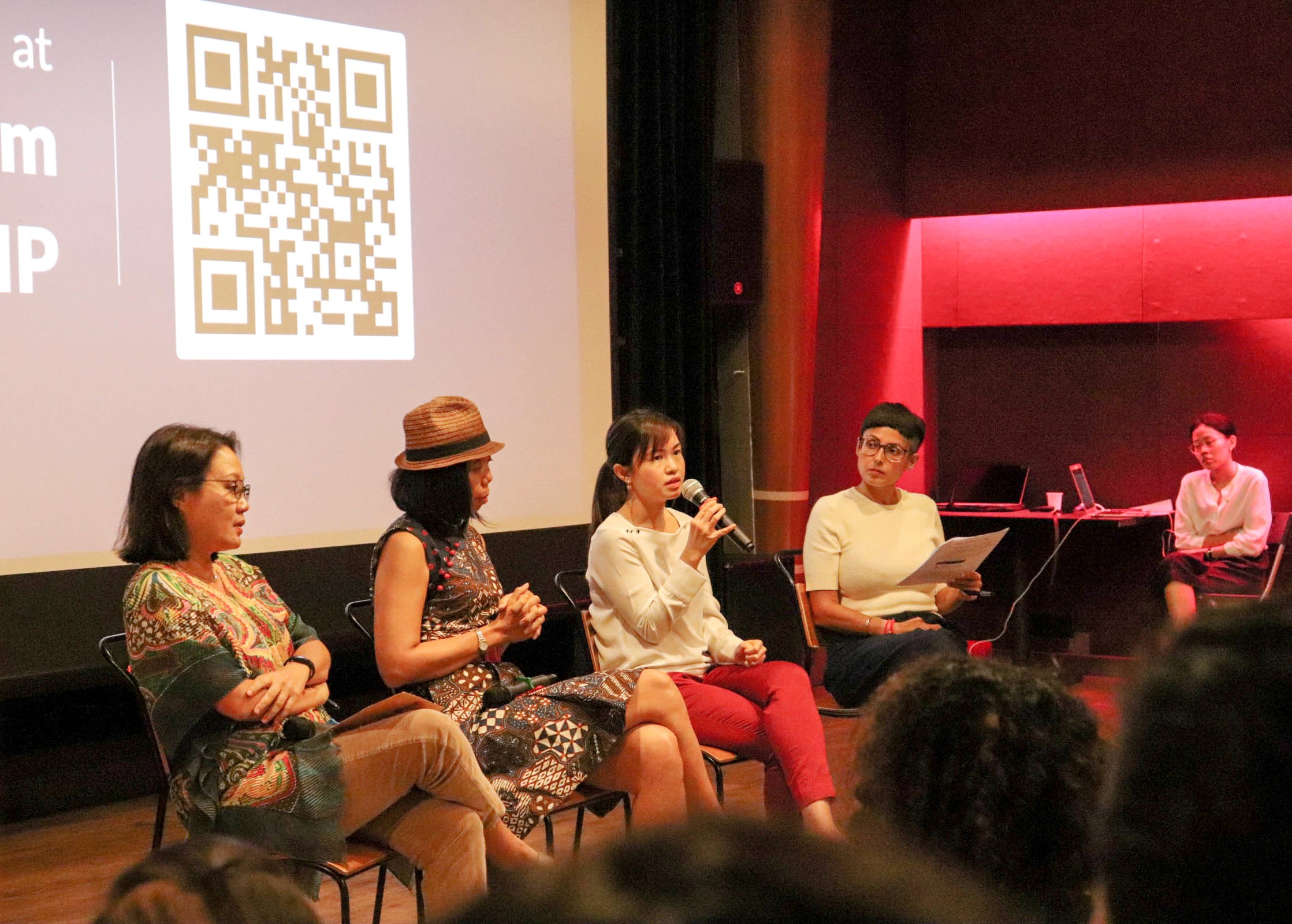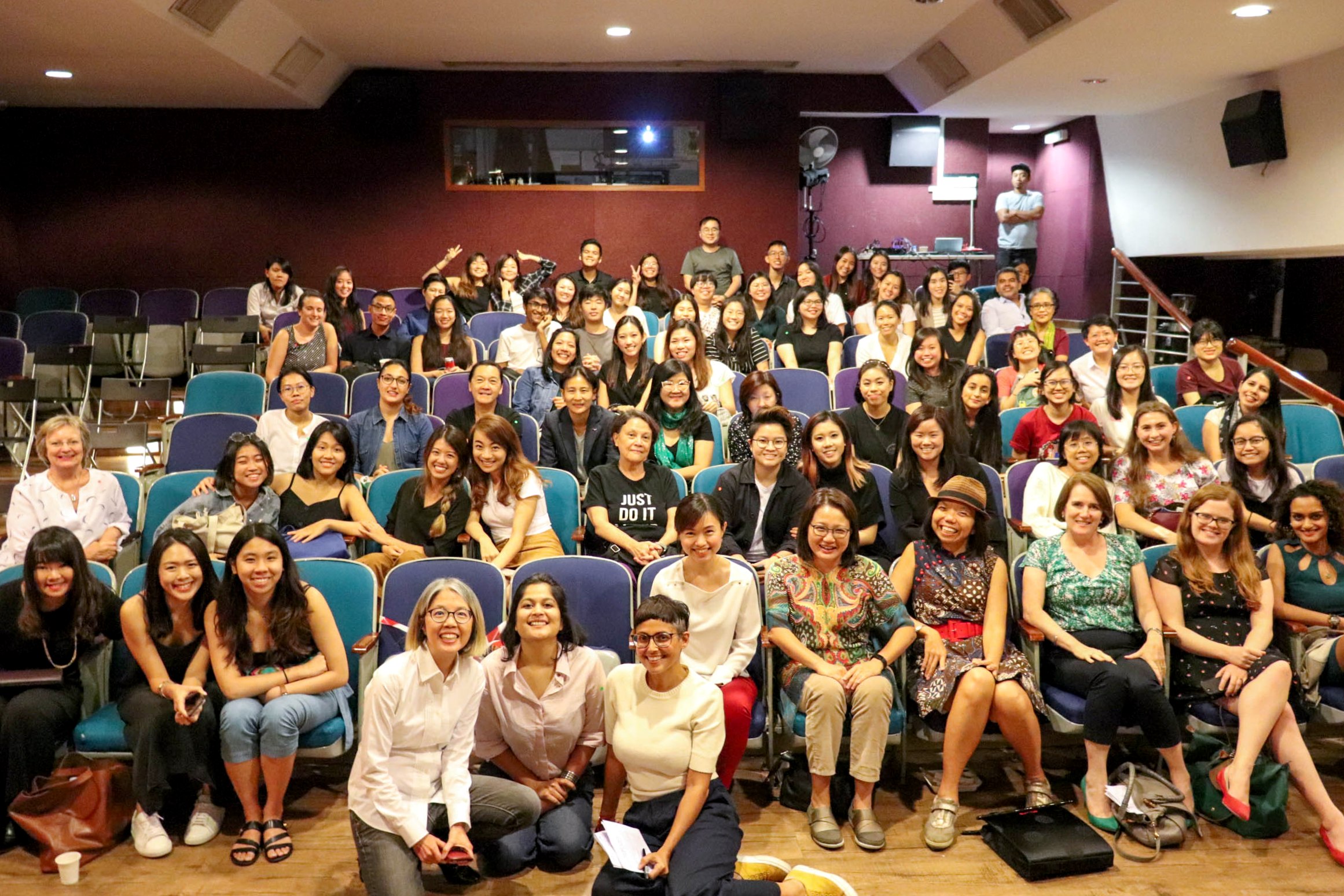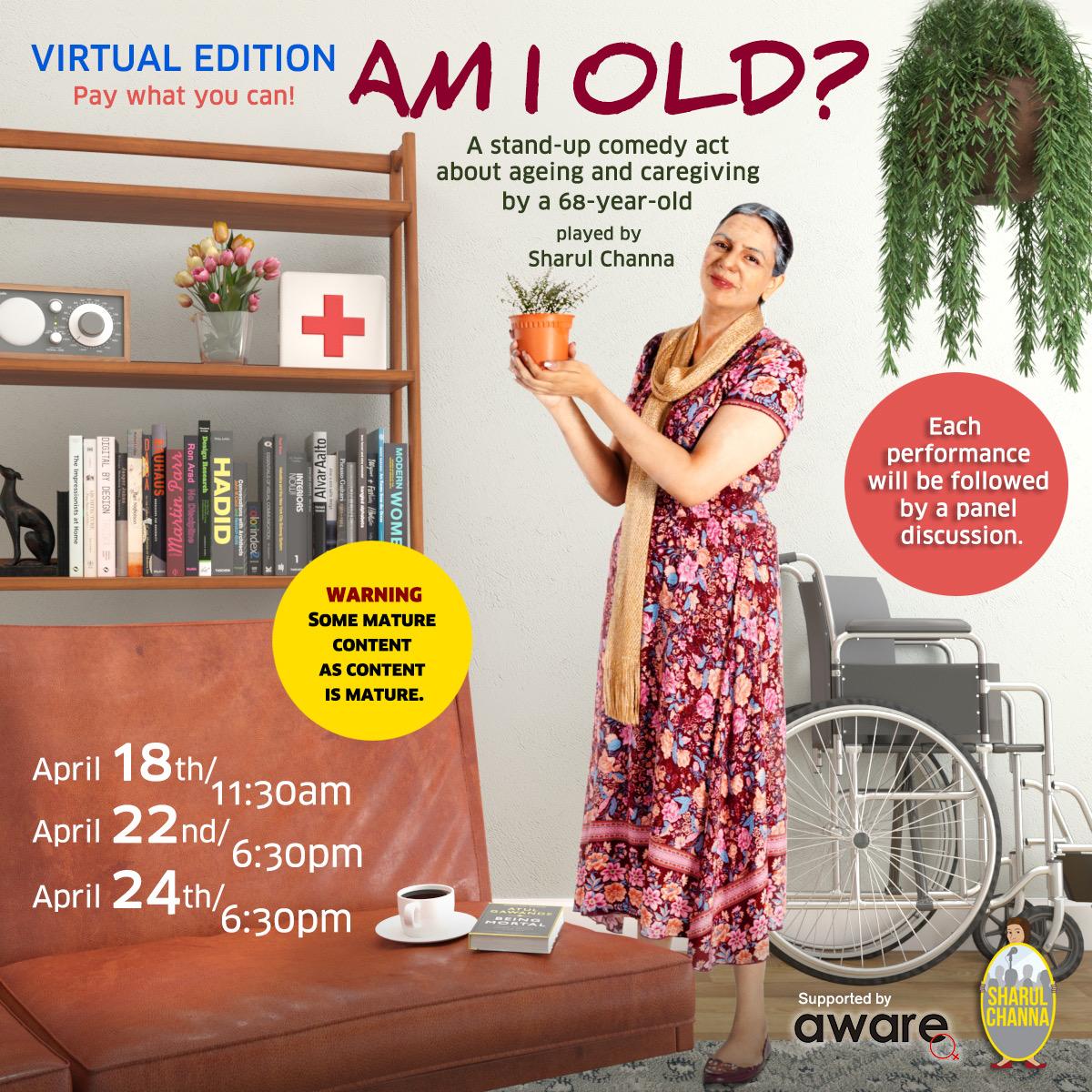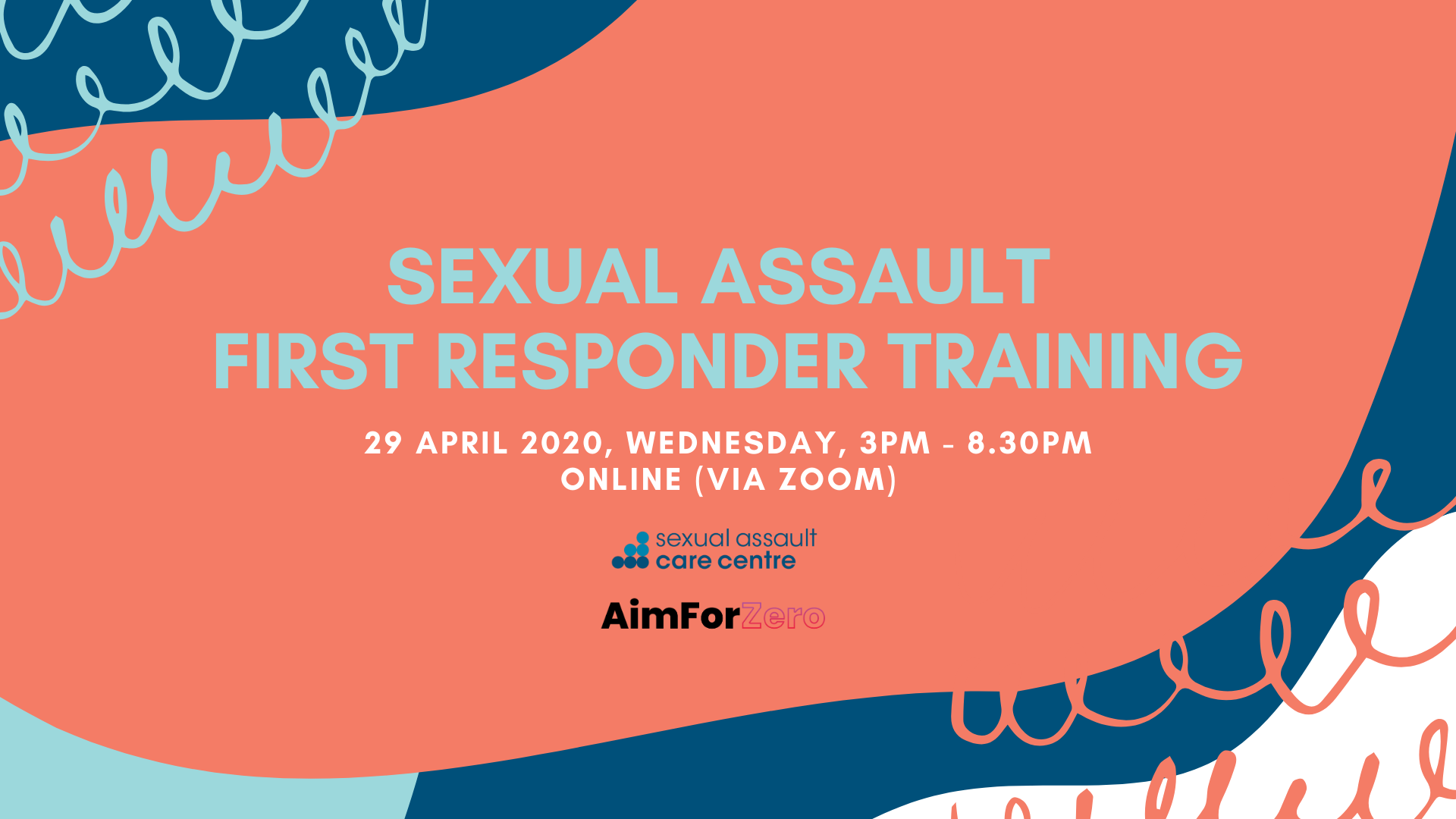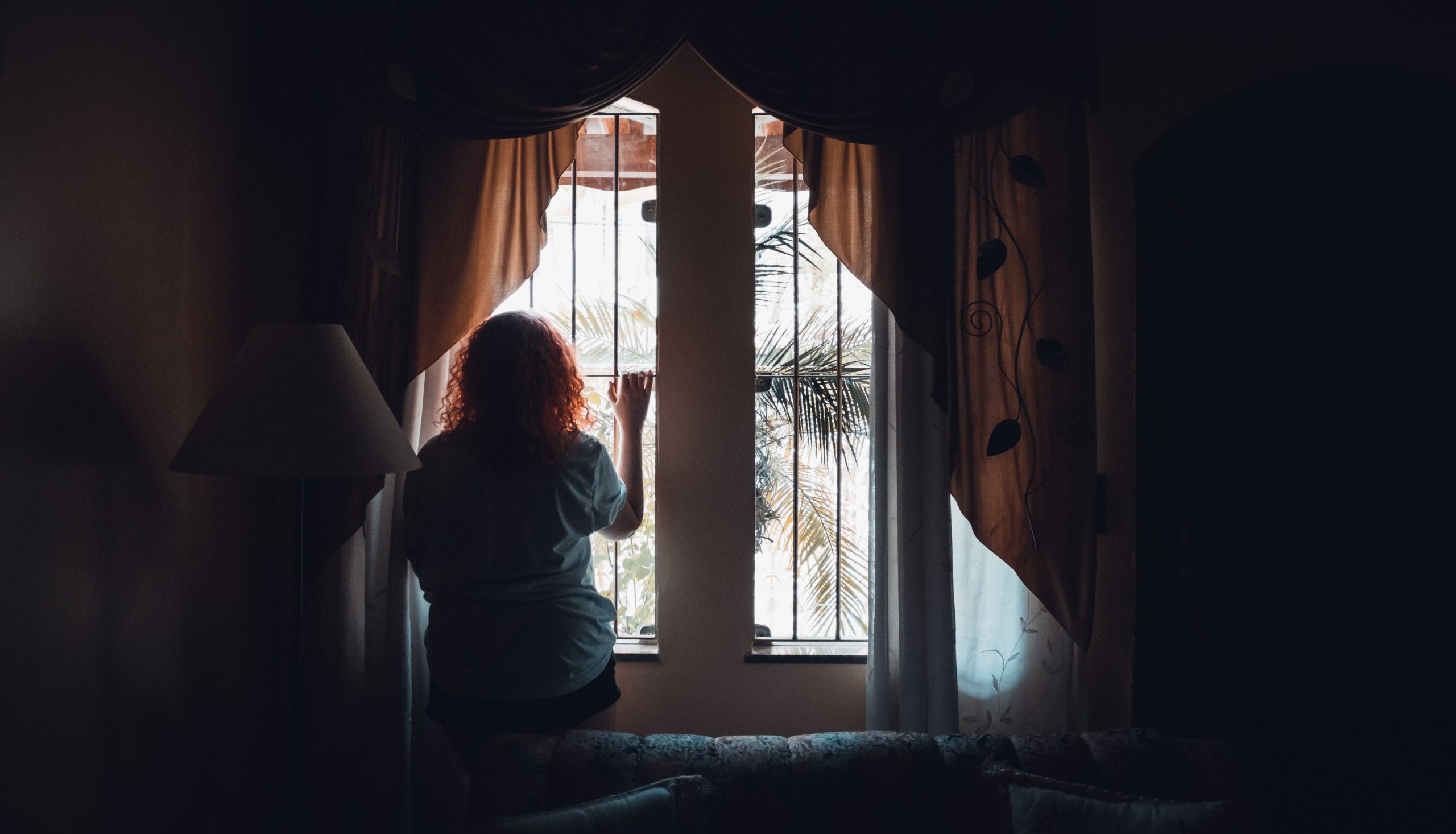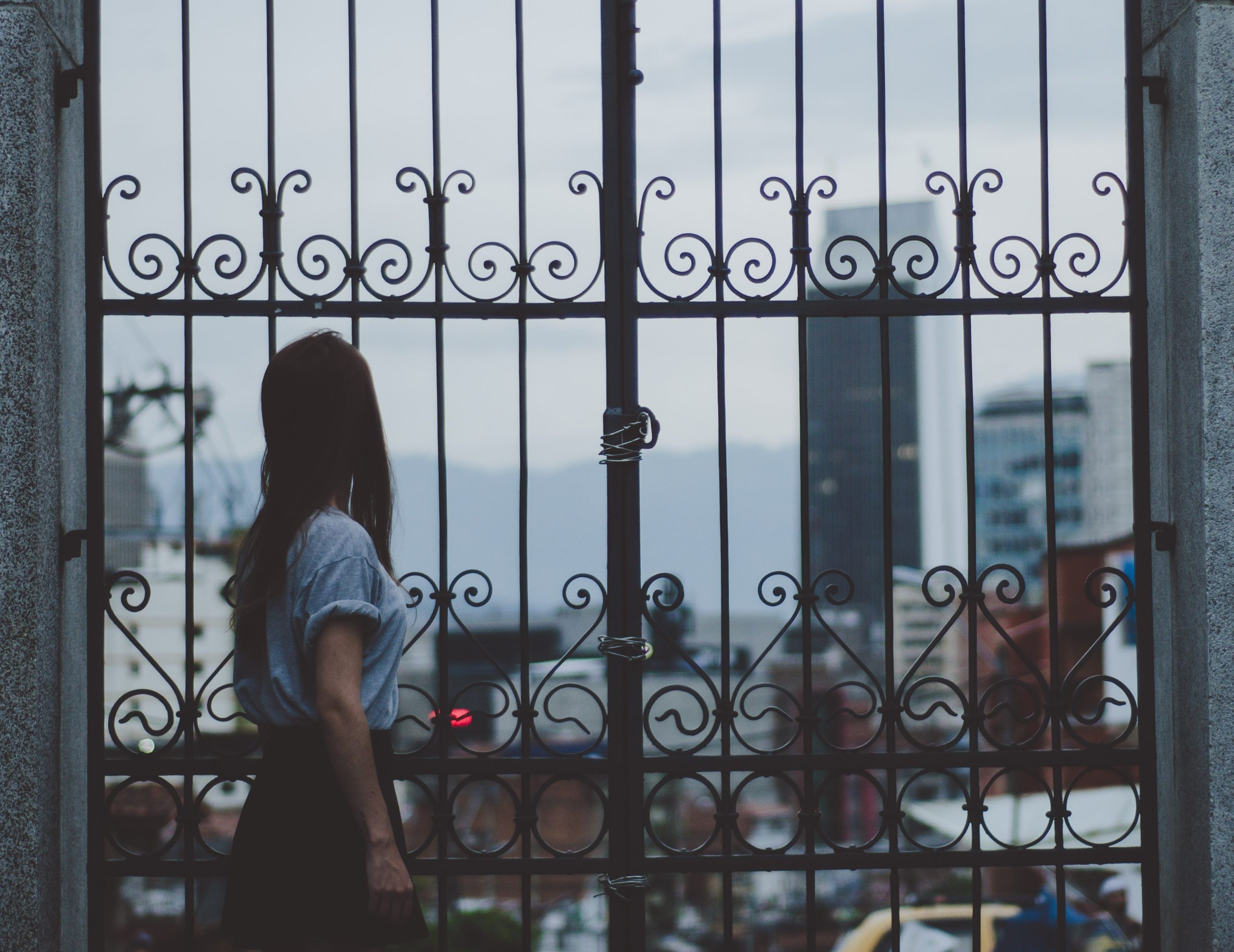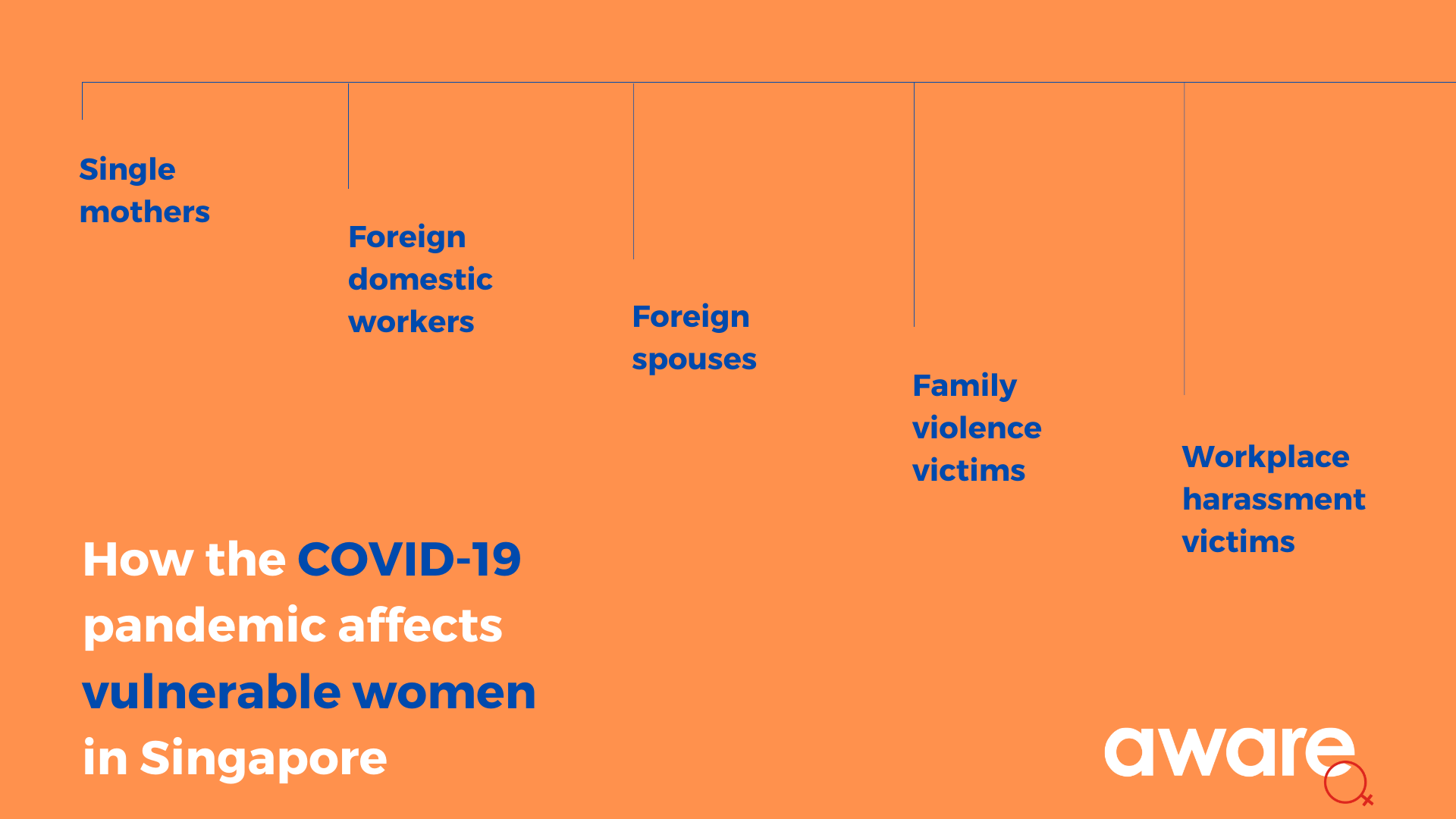
Gender and the Coronavirus
Few communities around the world have remained unscathed from the global COVID-19 outbreak. Yet the pandemic underscores the already stark inequalities experienced by women (and so many other vulnerable people), in areas such as unemployment, housing, caregiving and domestic violence. No wonder a recent headline from The Atlantic declared the coronavirus “a disaster for feminism”.
In this special report, we look at how this disaster is playing out for five particularly vulnerable groups of women in Singapore.
(A caveat: The below list is by no means exhaustive; other organisations—such as Sayoni, Project X, Beyond the Hijab and so on—would be able to shed more light on how COVID-19 affects other female communities in Singapore.)
If you would like to help AWARE support these groups, please consider donating to our Vulnerable Women’s Fund, to ensure that we can continue to provide, and if possible expand, our services during this crisis period.
Jump to section:
- Single mothers
- Foreign domestic workers
- Foreign spouses
- Family violence victims
- Workplace harassment victims
1. Single mothers
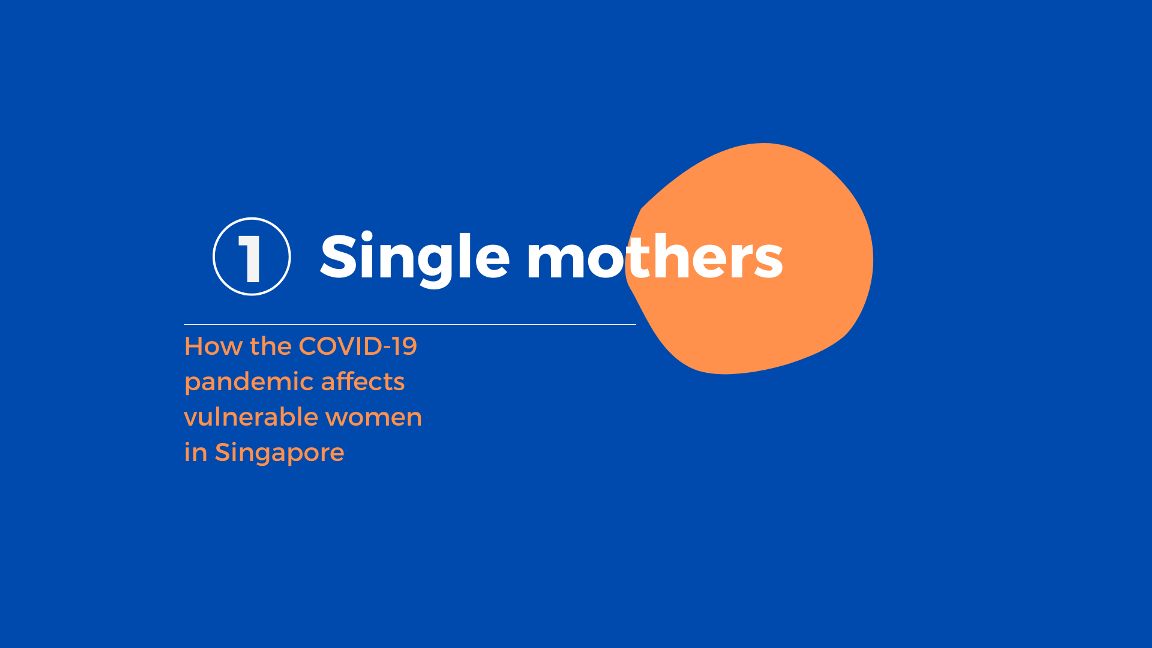
Low-income single parents are particularly vulnerable to crises such as the COVID-19 pandemic due to their precarious financial situation, with only one income to support the whole family. AWARE has been in touch with several single mothers who currently reside at our Support, Housing and Enablement (S.H.E.) Project shelter. Prior to moving into S.H.E., most of them lived with their ex-spouses or stayed temporarily with family members in overcrowded apartments and situations of family violence or abuse. They have voiced concerns in three main areas: employment, health risks and childcare.
Employment
One single mother and S.H.E. resident does house visits as part of her work. However, she has been unable to do any house visits since the COVID-19 outbreak began in February. This has reduced her pay to zero, as she gets paid by the number of completed house visits. So, while she is technically still employed, she has totally lost her financial stream.
Two S.H.E. residents who work in the F&B industry have seen a reduction of over 50% in customers at their workplaces. They worry about whether they will be retrenched due to poor business. On the other hand, an unemployed single mother resident is having a difficult time looking for employment, as many businesses have closed or have put a freeze on hiring.
Losing a job not only affects these women’s financial streams—it also affects their applications for HDB rental housing. Applying for HDB grants or loans requires them to produce 12 months’ worth of pay slips to prove that they have been in continuous employment for one year.
Health risks
Six of the residents at S.H.E. work as frontline staff, in positions like cashier, waitress, food delivery rider, airport scanner and therapy assistant. They interact with a high number of individuals daily and are therefore put at a higher health risk during this pandemic. Although some workplaces do provide paid medical leave, as well as masks and gloves, these practices are not consistent across the board. One woman has expressed concern over not being provided hand sanitiser while delivering food as she is not able to access handwashing facilities while being on the go.
Additionally, one resident also has a chronic illness which affects her immune system. But as a cashier, she does not have the privilege of working from home. She has to continue to work to ensure an income to afford her medication, putting her at a particularly vulnerable position in terms of her health.
Furthermore, some of these single mothers are working on a contract or casual basis. This does not provide them with any medical benefits, such as paid medical leave or workplace health insurance. Nevertheless, as work is their only source of income, they have no choice but to continue.
Childcare
Two single mothers have seen their children’s programmes, such as therapy or enrichment activities, cancelled, making it difficult for them to arrange childcare. One mother was previously able to leave her children at various facilities while she completed her chores at home, but now has to split her time between cooking and doing housework while keeping an eye on her young children. Having the children at home has also increased grocery expenditure, as they have to be fed. For single mothers now experiencing a loss of income due to the pandemic, this increase in expenses further exacerbates their financial strain.
Childcare centres are implementing more stringent measures to protect against the spread of COVID-19, and doctors are issuing longer medical leave. This means that when children do fall sick, mothers have to employ childminders for more days than usual, another additional expense. For children issued with a Leave of Absence notice, the single mother as the primary caregiver has no choice but to use her annual leave, or even go on no-pay leave, to care for the child. What’s more, if schools or childcare centres were to close down entirely, the mothers would have to scramble to find alternative arrangements for childcare.
Grasping at security during the COVID-19 pandemic
One unique aspect of our S.H.E. programme is that it provides housing for single mothers and their families for up to two years at a low monthly rental fee. Prior to moving into S.H.E, these families were enduring untenable living conditions, such as situations of family violence or abuse. One of them, a single mother with a 1-year-old baby, previously lived in a one-room rental apartment with four other family members, including a sister who was prone to violent tantrums. Being cooped up in a tiny space for long periods of time was extremely dangerous, especially with a baby, and stressful.
The single mothers that we interviewed expressed great relief that they are not facing the COVID-19 pandemic in their previous homes. One mentioned that living with her ex-partner would have driven her to madness, as dealing with his toxicity and abuse would have been too much to handle. Another imagined the fighting, financial issues and overcrowding she would have to deal with living with her mother and sister.
For these mothers, renting from the open market is too expensive on just a single income. For most, their income is both too high to qualify for public rental and too low to afford open market rental. Furthermore, if they were to lose their jobs due to the pandemic, the possibility of losing their homes would loom large. Instead, by living at S.H.E., these single mothers are able to set aside some money for a rainy day instead of having to spend a big chunk of their income to pay rent.
What can be done for them? The Singapore government could look into providing safe housing facilities for single-parent (and other vulnerable) families. Housing is a basic need that all citizens, regardless of marital status or family structure, should be enabled to access. Safe housing is especially crucial in a crisis like the COVID-19 pandemic, where families may be isolated in confined spaces with their abusers. The recently announced Temporary Relief Fund will help these mothers, but more financial support would be welcome for workers who have no work or reduced work, regardless of employment status, to cover for loss income.
Employers should provide all frontline staff with adequate protective gear, such as masks, gloves and hand sanitisers, and provide medical benefits such as paid medical leave, workplace health insurance, etc. Lastly, employers should provide sufficient parental leave or paid time off for low-income parents who are unable to work from home and have to take leave to care for their children.
AWARE’s #asinglelove campaign has compiled a page of useful resources and information for single parents in Singapore. Check it out here.
2. Foreign domestic workers
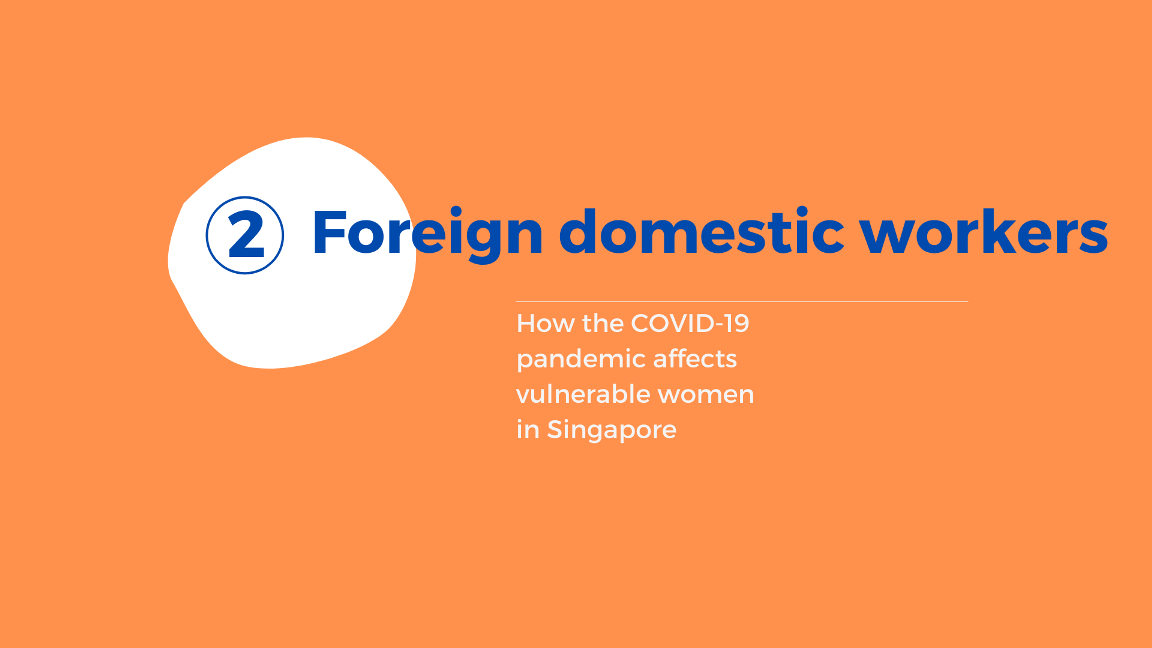
At the best of times, foreign domestic workers in Singapore are subject to difficult working conditions. They are excluded from our country’s primary labour law. The nature of their work has been used to justify unspecified working hours and a mandatory live-in requirement. Crises like COVID-19 bring unprecedented risks to FDWs’ physical, mental and financial health.
Strains on their physical health
As they are not allowed to live anywhere other than their employers’ homes, and may have limited personal space, FDWs may be more vulnerable to contracting COVID-19 if their employers are exposed to it. FDWs are neither able to influence their employers’ travel decisions nor transfer to another household without their employer’s permission. FDWs may also be sent out of their homes to crowded supermarkets to stock up on groceries and protective gear such as masks, at their employer’s request. Meanwhile, they themselves may be unable to buy masks and sanitisers at reasonable prices, and so are dependent on their employers’ generosity to avail of these protective products.
Moreover, FDWs are probably the first line of defence for most families in their efforts to step up cleaning of their homes. Increased cleaning leads to an increase in their workload, especially in homes with elderly or young children. Since 2016, an average of 2,700 foreign domestic workers are recruited per year through the Advance Placement Scheme to help specifically with childcare and eldercare. FDWs looking after the elderly or immunodeficient children may also be at increased risk of contracting the disease from close contact with their care recipients.
Lack of information
As unnerving as the constant news coverage on the virus may be, Singaporeans are generally reassured by timely advisories from the government on best practices and official measures to ensure everyone’s safety. FDWs often lack the same access to media outlets carrying such messages and are unable to keep up to date on announcements in languages they don’t understand. This includes information on their rights—such as MOM’s advisory to employers that FDWs who choose to stay home during their rest day should not be given work, or should be compensated if they do work. Humanitarian Organisation for Migration Economics (HOME), a non-profit that provides counselling and welfare services for domestic workers, reported being approached by domestic workers who have been prevented from leaving their employers’ homes, even to run important errands such as remitting salaries to their families overseas.
Abuse is another concern when FDWs are unable to leave their living environments. Government advisories to stay home during their rest days may remove their windows of respite from verbal or physical abuse at the hands of their employers and/or caregivers.
Financial losses to them and families back home
Some FDWs have had their salaries withheld, while others have been forced to work without compensation.
FDWs are also at increased risk of having their contracts terminated suddenly or with little notice. As reported in the media recently, fearful employers have gone so far as to cancel the work permits of FDWs while they are back home on annual leave. This leaves them suddenly unemployed and without even the option to transfer to another employer in Singapore. With the recent closure of entertainment venues, tuition centres and other places, employers who take hits to their own income may pass that on to FDWs, by either cutting their pay or not providing the usual salary increments. As more Singaporeans adopt working from home for the foreseeable future, they may be able to take on more household and caregiving work themselves, and may decide to reduce overall costs by letting go of their FDWs entirely.
Many FDWs come from families who are highly dependent on regular remittances of their salary to meet their own daily living expenses. This dependence may be exacerbated if family members’ own income is affected due to quarantine or stay home measures by their governments. If FDWs are unable to remit their salaries for whatever reason, their families’ financial ordeals may worsen, which could lead to a further sense of helplessness and frustration.
FDWs may also be unable to travel home for their annual vacations due to the travel bans or advisories imposed on ASEAN countries. Even before formal travel advisories were announced, employers may have turned down their requests to take their contractual vacation due to fears of them being served Stay Home Notices upon their return. As mothers, wives and daughters themselves, FDWs could experience both fear for their loved ones’ safety and guilt for being away from them during this critical time.
It is important that FDW’s vulnerable working conditions are taken into account in planning for mitigation of these effects. In the short-term, the government could consider several actions. Firstly, it can increase outreach efforts to FDWs to inform them of their entitlements—e.g. the option to take their rest days on other days of the week to enable them to run important errands. Secondly, it can make it mandatory for employers to refrain from assigning FDWs work during their rest days.
3. Foreign spouses
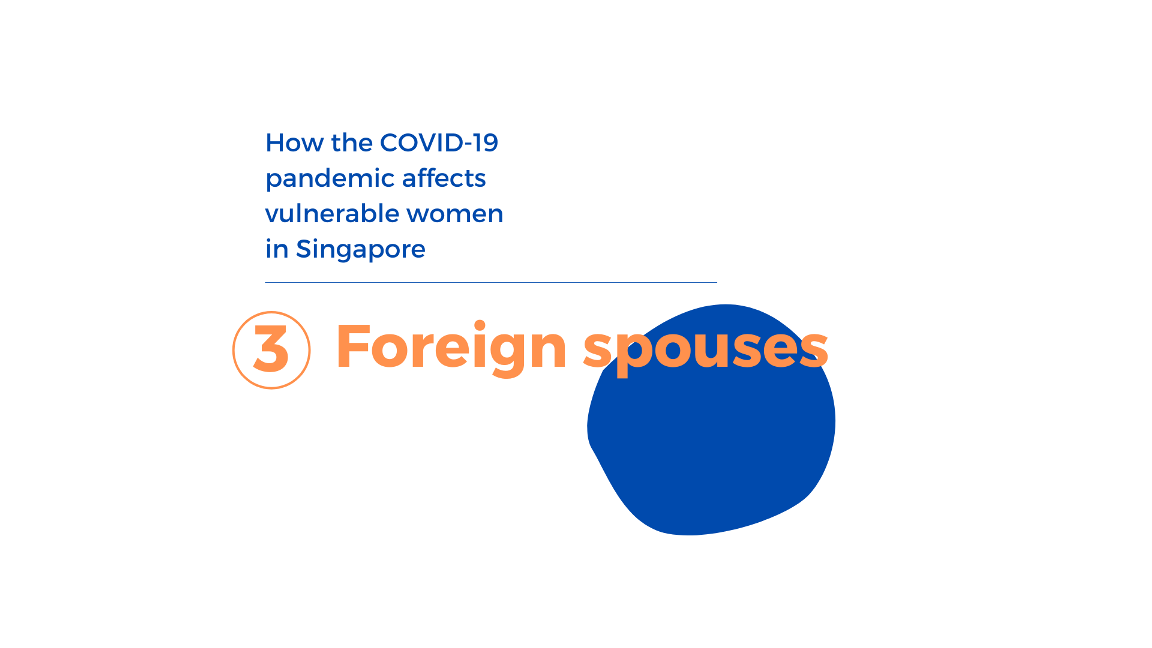
Members of transnational families might be physically separated from each other during a pandemic, due to the travel restrictions imposed to contain the spread of the virus.
In 2019, about 13,400 Singapore citizen children under the age of 21 had foreign parents residing in Singapore on either a Long-Term Visit Pass (LTVP) or a Work Pass.
Some of these children risk separation from their non-resident parents, who are now barred from re-entering the country unless they are LTVP holders or work pass holders providing essential services, such as healthcare and transport. Since 23 March 2020, parents who are on short-term visit passes cannot enter the country for the time being.
Even for those on LTVP, great uncertainty still persists. The validity of LTVP varies in length, and there is no guarantee of successful renewal. Those whose LTVPs expire or are due for renewal during this period may end up losing their right to stay in Singapore, while possibly also encountering re-entry restrictions in their home countries, leaving them stuck between two places.
Healthcare costs
Foreign spouses who are LTVP holders will, like citizens and Permanent Residents, benefit from government-subsidised rates when they receive treatment for the coronavirus in public hospitals. Testing fees are waived for all. And those on short-term visit passes will need to pay for the full cost of their treatment from 7 March 2020 onwards.
Impact on work and financial situation
Transnational families may face economic challenges as the pandemic persists. Family members of Work Pass holders barred from re-entering the country would lose a source of income. Low-income families will be hard hit, especially if they rely on work that is precarious and comes with little to no job security or benefits. As more social distancing measures are put in place, households may rely more on food delivery services, which could be prohibitively expensive or unaffordable to low-income families in the long run.
Foreign spouses on LTVP can continue to work in the country. While national data on the number of LTVP holders by job industry is not publicly available, existing research and our own experience interviewing foreign wives on LTVP suggest that many tend to be doing frontline jobs, e.g. F&B, retail or home care. This work puts them at a higher risk of infection, given that they have close interaction with customers and clients.
Social isolation
Foreign spouses often have limited to no social support in Singapore. Physical isolation resulting from social distancing measures makes it even more difficult for foreign spouses to seek help in situations of family violence as they usually do not have friends and family in the country.
Policy recommendations
While we have yet to observe if and how the response to the pandemic affects LTVP applications and renewals, we hope that more sensitivity will be shown to the situations of transnational families who could benefit from more stability in these uncertain times.
During this crisis, the government could relax criteria for—or simply approve all—LTVP/+ applications and renewals by (i) foreign spouses of citizens and (ii) foreign parents of citizen children who are physically in Singapore. They could also allow abused foreign spouses to renew LTVP/+ independently of their citizen spouse. The government should consider extending employment and financial support for Singaporeans/PRs to all foreign spouses with citizen children. They too are part of our country and community and make contributions to our economy and society.
4. Family violence victims
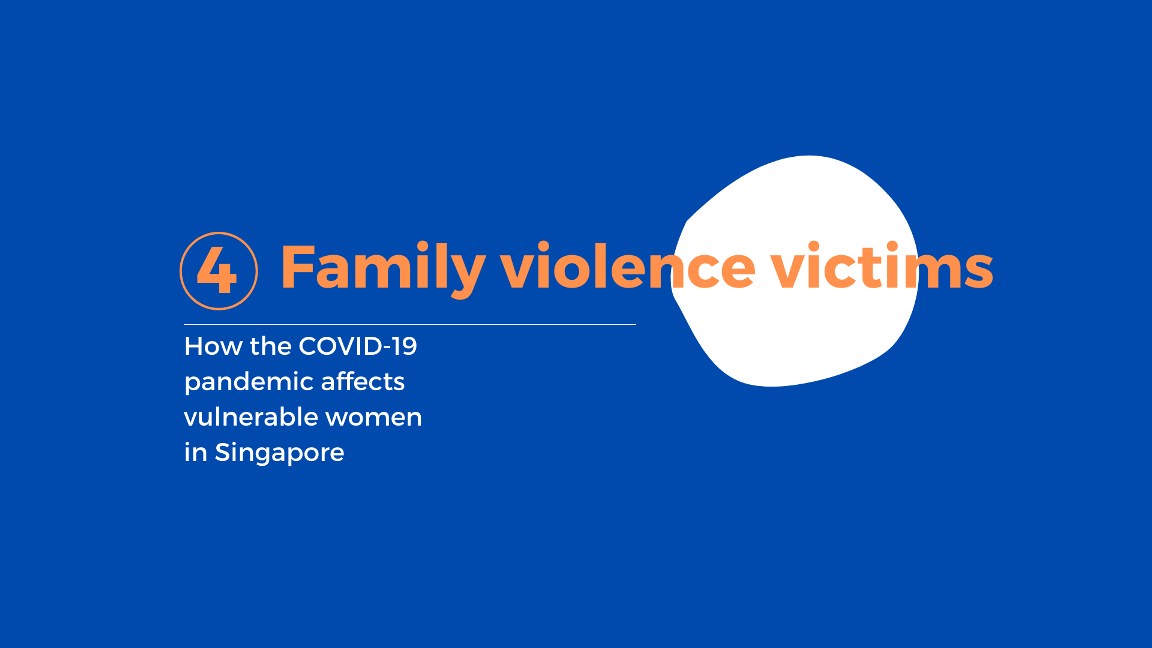
(Adapted from an op-ed originally published in Channel NewsAsia on 26 March 2020)
This March, AWARE received 619 calls (including WhatsApp messages, emails, walk-ins and referrals), which is our highest-ever number of monthly calls. There was a sharp uptick in individuals struggling with emotional and psychological distress and abuse.
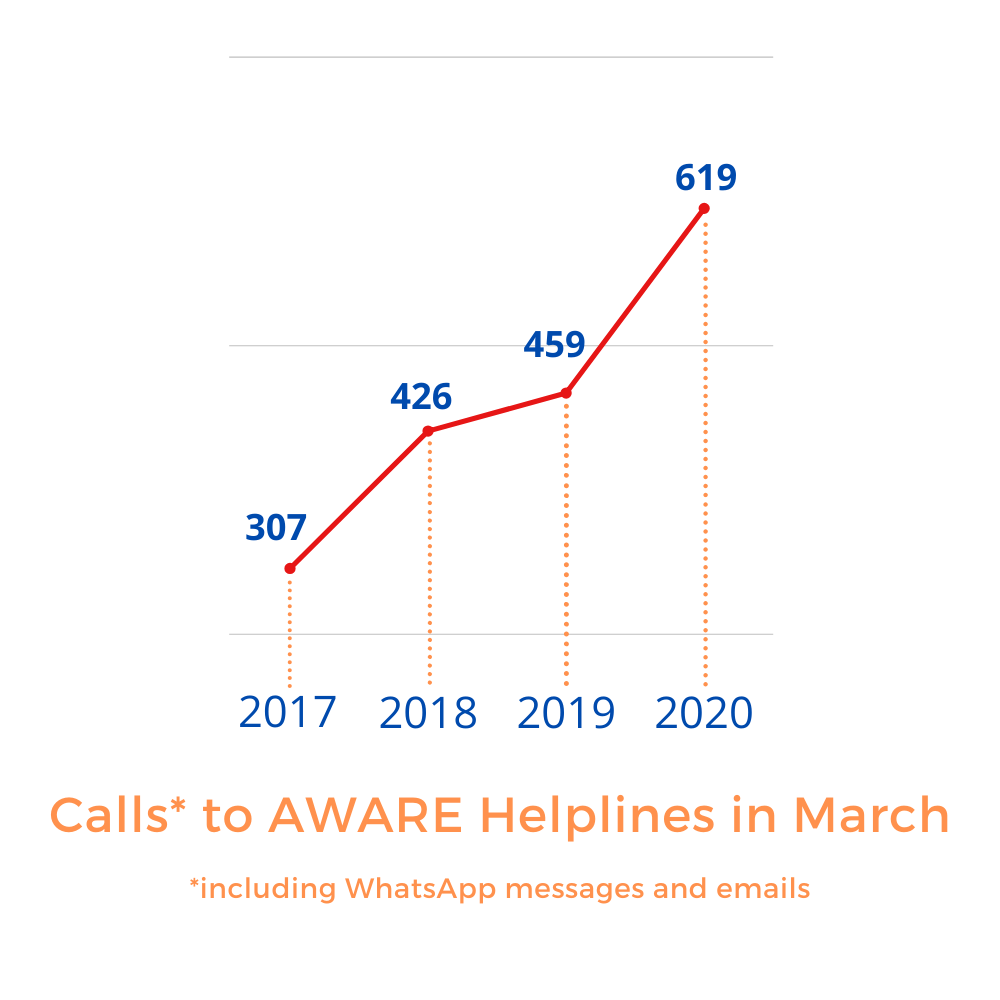 Social workers AWARE spoke to recently reported similar increases in family violence cases and agree that isolation may be increasing the incidence of abuse, even as the circumstances and reasons that lead to people reaching out for help remains difficult to establish even under normal circumstances, let alone during crises.
Social workers AWARE spoke to recently reported similar increases in family violence cases and agree that isolation may be increasing the incidence of abuse, even as the circumstances and reasons that lead to people reaching out for help remains difficult to establish even under normal circumstances, let alone during crises.
One social worker highlighted that 60 per cent of recent daily referrals had been family violence related, up from 30 per cent last year. Another highlighted a couple of cases they saw that resulted in a sudden escalation in violence when families were given stay-at-home notices.
Pandemics and family violence
Crises like pandemics and natural disasters may be accompanied by an uptick in family violence because of three reasons. These reasons are closely associated with family violence’s roots in power and control.
First, pandemics are typically situations in which people’s lives may seem out of control. This could trigger abusers to lash out against their victims, in order to regain some semblance of control over a situation. An already abusive relationship may therefore worsen.
This may be why economic hardships themselves are a trigger for more abuse in a relationship. A research study on intimate partner violence and the global financial crisis in the US found that unemployment and economic hardship at the household level were positively related to abusive behaviour.
Second, social support – from family, friends or other sympathetic allies – is critical in helping family violence victims heal and build hope.
Yet containment measures, such as work-from-home arrangements or when workers are put on enforced leave, increase social isolation. Many victims may also feel that they can no longer seek refuge at the home of a friend or relative, especially those with elderly residents or children, for fear they could expose their families to the virus.
Third, the coronavirus crisis is likely going to push the world economy into recession, which will make it even more difficult for victims to leave abusive relationships.
Leaving an abusive partner often involves establishing financial independence – for example, by keeping a secret savings account that the abuser cannot access – but this will be more difficult if victims begin to lose jobs.
Not everyone can get help
Increased time spent at home may increase the incidence of family violence, as abusers and victims find themselves in close proximity 24/7.
But being forced to stay at home may also impact a victim’s help-seeking behaviour. Typically, victims call helplines and services when they are away from their abusers, such as at work, or out on an errand.
With more people spending time indoors, victims may be afraid to reach out for help, assessing that their abusers have a higher chance of finding out.
Services themselves might also be impacted as a result of COVID-19. For example, crisis shelters may be taking necessary precautions to close their doors if they deem the risk of infection to be high.
Helplines and social service organisations may be under pressure from increased demand and unable to respond promptly.
Addressing family violence
As we begin to track the secondary effects of the coronavirus crisis, we must include the impact of family violence, and prioritise services providing crucial support to victims.
Any stimulus package can include specific plans to build the long-term economic resilience of all those who have been affected, especially family violence victims. This will be crucial for them to maintain financial independence from their abusers.
The package can also provide financial and technological support to social service organisations so that they are not forced to scale back operations at this crucial time, and can instead use this as an opportunity to take more of their work online.
We are currently accepting applications for volunteer Helpliners. For more information, click here.
5. Workplace harassment victims
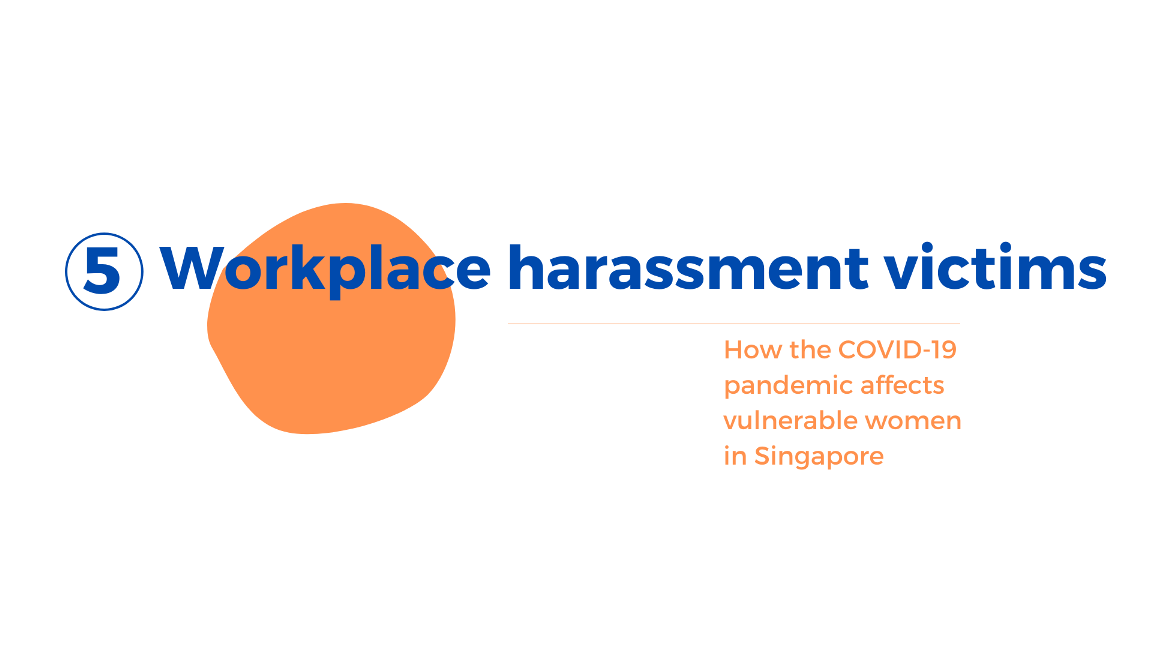
In Singapore, remote work has never been as common as in other countries—which means that thousands of Singaporeans are now discovering the pros and cons of the home office for the very first time.
As we redefine traditional work practices—such as formal dressing, responsiveness expectations and meeting protocol—many are, unfortunately, finding conventions of respect and etiquette eroding as well. Contrary to the general perception that remote work arrangements may prevent workplace harassment, telecommuting has seemingly opened up new avenues for harassers.
Workplace harassment is not limited to statements and actions made within the office space. It can occur outside of the formal workplace, and through different modes of communications: email, text messaging, social media or video calls. In fact, AWARE’s Workplace Harassment & Discrimination Advisory (WHDA) has seen numerous clients reporting abusive and insulting language sent to them in group chats and emails, many outside of working hours.
After all, the motivations behind harassment do not change as work arrangements change. The intention to humiliate, undermine and insult others still remains, even if potential victims are miles away.
New opportunities and new targets
One form of cyber-harassment is technology-facilitated sexual violence (TFSV). TFSV includes unwanted and explicit sexual messages and calls, or image-based sexual abuse such as the non-consensual sharing of intimate photos.
The unprecedented amount of time people are spending online throughout the day may have opened up a new frontier of TFSV. In fact, technology gives rise to new ways for abusers to target both colleagues and strangers online.
Workers have reported a significant rise in “Zoom-bombing”, the phenomenon of unwanted guests intruding into online meetings for malicious purposes. Last week, the Thomson Reuters Foundation reported an incident of TFSV during a virtual social event held on the video conferencing platform Zoom: A group of people in the United States received a pornographic video while dialing into a virtual “Work from Home Happy Hour”, meant for friendly virtual socialising.
Getting away with it
With employees working from home, one-on-one video calls with colleagues have become a necessity. Yet they also present abusers the opportunity to harass, insult or belittle another individual without being witnessed or held accountable. Of course, not all in-person harassment is witnessed or documented either—but it is more likely to occur in a public space in front of colleagues, or over email or text message (i.e. a paper trail). With one-on-one calls, however, capturing evidence is more difficult. This lack of evidence makes it harder for a survivor to substantiate the harassment when making a report.
What’s more, cyber-harassment is often perceived as more “subtle” than offline harassment. In fact, it is equally distressing for survivors—but many employers fail to grasp this.
One WHDA client had previously received remarks on her age, weight and dressing style, which later escalated to verbal threats, from her manager while they worked in the office. However, she found her harassment complaint dismissed on the basis that her company’s new remote working arrangements would eliminate the problem for her. She continues to experience harassing text messages.
Delay in receiving tech support
Manpower shortages prompted by COVID-19 are causing delays in the detection and removal of rule-violating posts on some online platforms.
Social media platforms such as Facebook have to date played a vital and active role in addressing sexual exploitation on their platforms. However, the company recently announced potential delays in the detection and removal of rule-violating posts amid staff changes due to the impact of COVID-19. Delays in action on image-based sexual abuse have severe repercussions for survivors, as the longer an image remains hosted on a platform, the more potential downloads (and subsequent re-uploads) can take place—actions that are notoriously hard to track afterwards. At AWARE, we have witnessed first-hand how the unmanageably wide spread of such images results in a loss of dignity, privacy and sexual autonomy for a survivor.
While technology does allow for continued productivity in these disruptive times, we must be vigilant about the undesirable side effects of our mass online migration. Harassment (cyber or otherwise) causes mental anguish, depression and anxiety for survivors, and—aside from other repercussions—affects their job performance. All the more reason for companies to instill comprehensive guidelines to tackle the issue in a fair and sensitive manner.
Call our Workplace Harassment and Discrimination Advisory at 6777 0318 (Monday – Friday, 10 a.m. – 6 p.m.) if you need practical advice or emotional support for issues at your workplace.
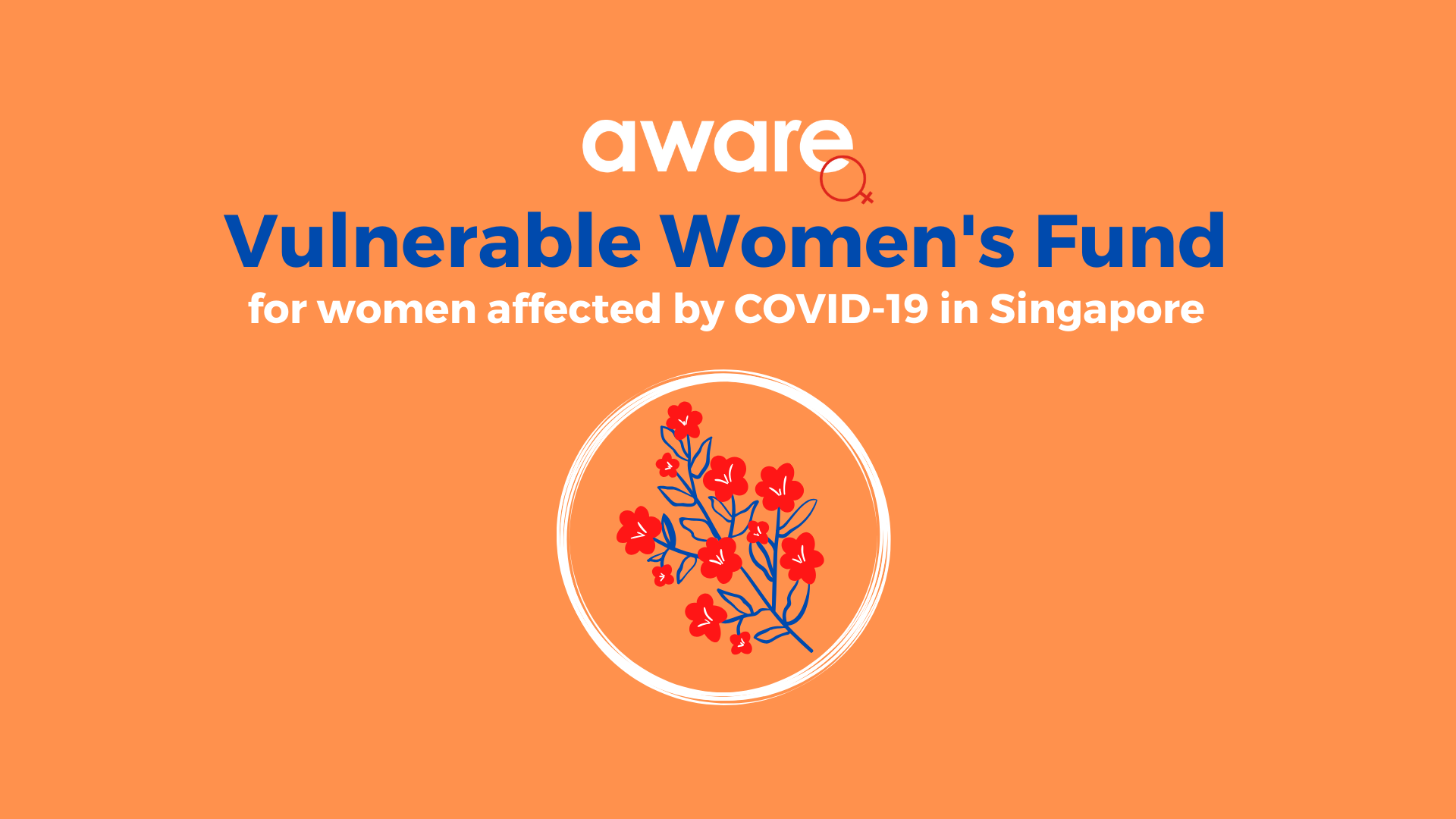
Your donations will go towards three of our gender-equality programmes: our Women’s Helpline and Sexual Assault Care Centre, our S.H.E. Project Shelter and our research and advocacy.




